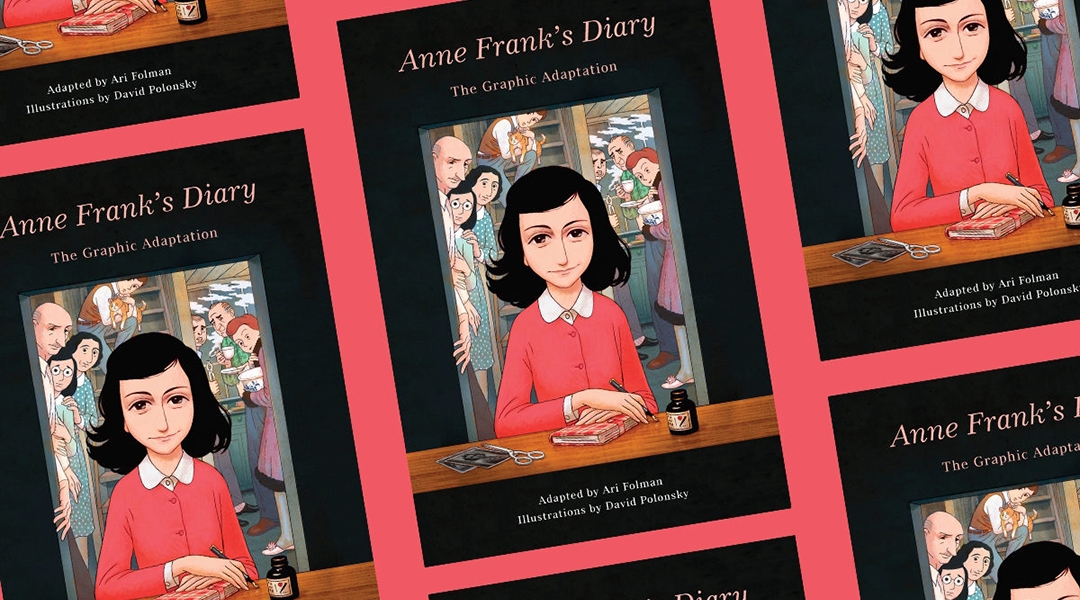(JTA) – A public high school in Florida has removed an illustrated adaptation of Anne Frank’s diary from its library. It is the second known instance of this particular edition of the famous Holocaust book being swept up by conservatives seeking to purge schools of literature they deem inappropriate.
The principal’s office of Vero Beach High School, which is located in a community on Florida’s east coast, recently decided to remove “Anne Frank’s Diary: The Graphic Adaptation” from its school library, according to Cristen Maddux, a spokesperson for the Indian River County school district. Maddux told the Jewish Telegraphic Agency the book was determined to be “not age appropriate.”
Last year, a school district in Texas ordered its librarians to remove the same book before reversing course a week later following public outcry. Other books about the Holocaust recently removed by public schools include Art Spiegelman’s “Maus,” which a Tennessee district pulled from its middle school curriculum last year, and Jodi Picoult’s “The Storyteller,” which was removed from another Florida district last month following a parental challenge.
The removal at Vero Beach High School was spurred by at least one challenge from a parent in the district affiliated with the conservative activist group Moms For Liberty, according to the Treasure Coast News, a local publication. In the challenge, the parent had reportedly written that the book was “not a true adaptation of the Holocaust.”
The district backed up that sentiment, Maddux told JTA. “That’s not the actual diary of Anne Frank,” she said. “It’s a fictional novel that has some inappropriate content in it.” Maddux added that the book “was removed due to minimization of the Holocaust,” and said, “Library spaces in the district currently have factual accounts of The Diary of Anne Frank.”
Maddux said that she herself had not read the book and did not immediately know what the “inappropriate content” in question was.
In a statement to JTA about various challenges to the graphic adaptation, the Anne Frank Fonds, the Switzerland-based foundation that controls the copyright to her diary, said it was “generally concerned that ignorance about the Shoah, relativization or denial of history are on the rise, especially in the United States.”
The foundation also defended the inclusion of Frank’s original writing by saying, “We consider the book of a 12-year-old girl to be appropriate reading for her peers.”
The graphic novel adaptation of the diary was released in 2018 with the full authorization of the Anne Frank Fonds. Adapted by Israeli filmmaker Ari Folman and illustrator David Polonsky and intended for young readers, the book compresses Frank’s actual diary entries into a condensed version of her true story. While it does contain some invented dialogue and surrealist scenes, reproductions of Frank’s actual diary in the book hew to her exact words.
The graphic novel has attracted some scrutiny for reproducing passages of Frank’s diary that had been edited out of its original Dutch publication in 1947. (The diary was first published in English in 1952.)
Those passages relate Frank’s latent feelings of attractiveness toward another girl and her description of her own genitalia. Anne’s father Otto Frank restored the former passage for the book’s 1952 English edition, while the latter was not restored to the diary until the 1980s. Another Florida parent in a different school district has told JTA they filed a request to remove the graphic adaptation because of objections to these passages.
Florida in particular has seen a number of book removals as Gov. Ron DeSantis, a Republican, signed legislation giving parents power to challenge classroom materials, and holding educators liable for making inappropriate content accessible to students.
DeSantis has also signed legislation mandating teaching about the Holocaust and antisemitism in the state.
Correction: A previous version of this story incorrectly reported that the passage of Anne Frank’s diary that included her feeling of attraction toward a female friend wasn’t restored to the published version until the 1980s. In fact, Otto Frank restored this passage in 1952.
JTA has documented Jewish history in real-time for over a century. Keep our journalism strong by joining us in supporting independent, award-winning reporting.






